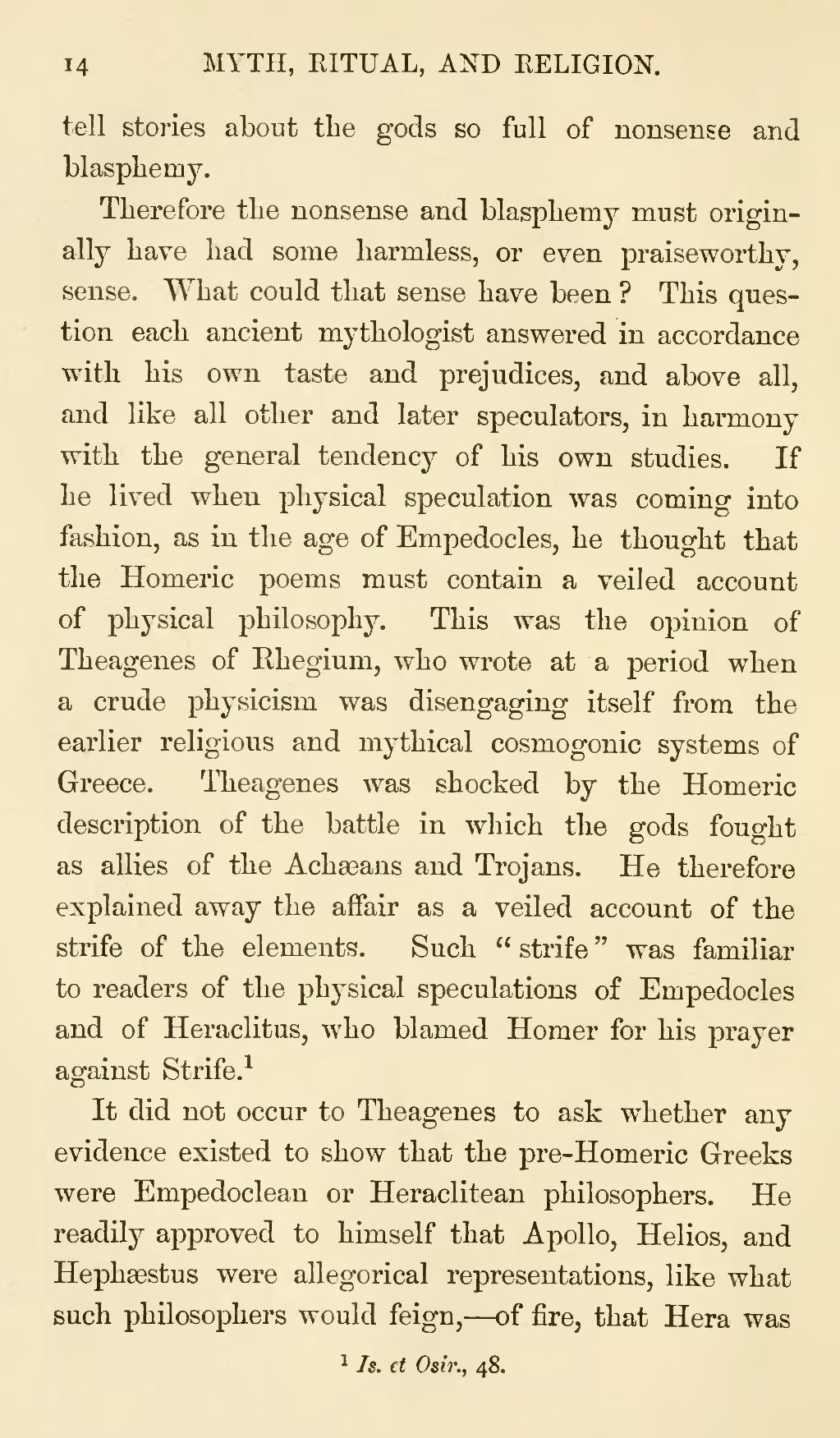tell stories about the gods so full of nonsense and blasphemy.
Therefore the nonsense and blasphemy must originally have had some harmless, or even praiseworthy, sense. What could that sense have been? This question each ancient mythologist answered in accordance with his own taste and prejudices, and above all, and like all other and later speculators, in harmony with the general tendency of his own studies. If he lived when physical speculation was coming into fashion, as in the age of Empedocles, he thought that the Homeric poems must contain a veiled account of physical philosophy. This was the opinion of Theagenes of Rhegium, who wrote at a period when a crude physicism was disengaging itself from the earlier religious and mythical cosmogonic systems of Greece. Theagenes was shocked by the Homeric description of the battle in which the gods fought as allies of the Achæans and Trojans. He therefore explained away the affair as a veiled account of the strife of the elements. Such "strife" was familiar to readers of the physical speculations of Empedocles and of Heraclitus, who blamed Homer for his prayer against Strife.[1]
It did not occur to Theagenes to ask whether any evidence existed to show that the pre-Homeric Greeks were Empedoclean or Heraclitean philosophers. He readily approved to himself that Apollo, Helios, and Hephæstus were allegorical representations, like what such philosophers would feign,—of fire, that Hera was
- ↑ Is. et Osir., 48.
